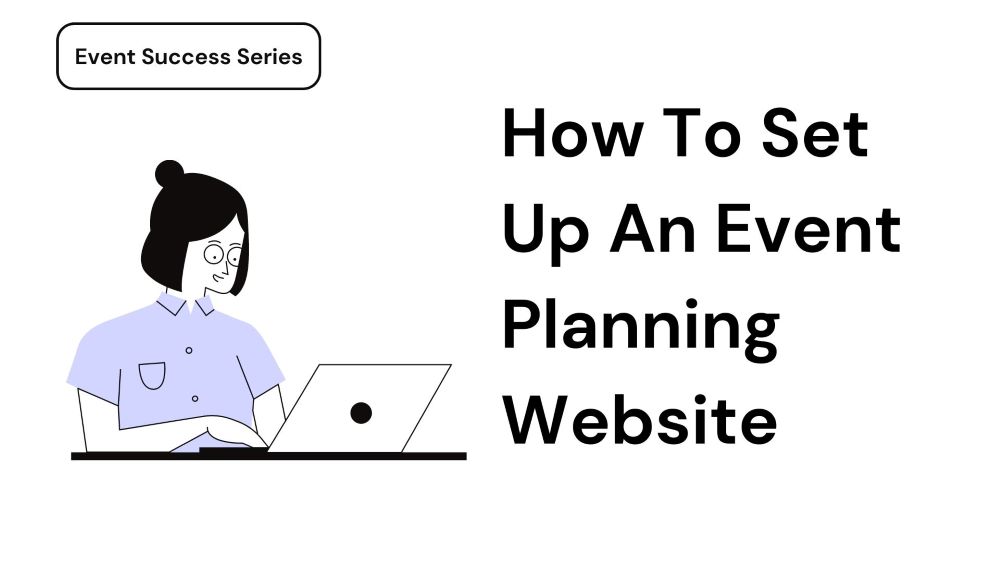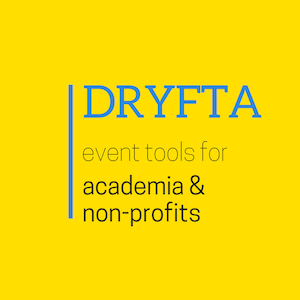If you’re looking to start an event planning business, it’s important to know how to set up an effective website. A good website is crucial for attracting clients and getting them excited about your services. The easier it is for them to find you online, the more likely they’ll reach out! That said, designing and building a website from scratch can be a daunting task if you’re not a web developer. Luckily there are plenty of resources on how to host your site. In this blog post, we’ll cover everything you need to know about setting up an event planning website.
Choose a website builder.
You have hundreds of options when it comes to website builders, but none will be as important for your event planning business as choosing the right one. As an entrepreneur, you will want to choose a website builder that is easy to use and update. This can save you time when building your website and updating it regularly after each event you host. Also, it’s essential to choose a website builder platform that meets all of your needs and has affordable pricing structures so that you can create a professional-looking site without breaking the bank.
Another point that one has to take care of is the website builder’s reputation. Make sure there are no negative reviews online before deciding whether or not this provider works for what type of business needs yours has now or down the road later when its popularity grows even more quickly than expected! You wouldn’t want them stealing credit card information from customers visiting through their platform without permission first (which happened before).
Create an email list for updates about your event.
A great way to build excitement before your event is to create an email list for which people can sign up. This will let you send out updates about your event and remind people of the date so they don’t forget. To make sure it’s easy for people to sign up, create a form with fields like name, email address, and phone number. Make sure you also include an unsubscribe option so they can easily opt out if they no longer want emails from you in their inboxes. Once someone has signed up for this list (and confirmed their email address), it’s important that you keep the list private. You don’t want any spammy marketers trying to get access to those emails or using them themselves without permission.
Have a separate area for any event sponsors.
As an event planner, you can’t forget the importance of sponsors. Sponsors are often the ones who help fund your events, provide equipment or services, and help get the word out about your event. They can also be an excellent source for finding new attendees for your event, as well as helping to promote your business’s name in general. It’s important to have a separate area on your website where sponsors can add themselves (and their logos).
Have an FAQ section
As a website, you’ll get a lot of the same questions over and over again. Have an FAQ section so you don’t have to respond to the same questions over and over again. This helps remove any friction from your customer’s experience on your website.
When creating this page, the first thing that needs to be done is to list all of the most common questions people want to be answered about your event planning services or products.
Use high-quality graphics and photos
Your website is the first thing potential customers see, so it should be a representation of your brand and an extension of your identity. If you want to impress them with what you can offer, you need to ensure that everything reflects positively on your company. That includes the graphics and photos that are used throughout your site.
If you have high-quality graphics and photos of previous events from previous years, then use them. Please make sure they’re relevant and reflect well on your brand.
Go easy on the site navigation
When you’re building your event planning website, one of the most important things to do is keep it simple. This means not overdoing the navigation. When visitors land on your page, what they need to know should be clear and easy to find without being buried under extra links or menus. The best way to keep customers happy is by offering them the information they need in a timely and easy-to-find way.
For example, if you want visitors to know more about what kind of events you can help them with, make sure that it’s somewhere near the top of your homepage.
An excellent web design will improve the customer experience at your website
Your web design should be more than just a pretty picture. It should serve a purpose and help your visitors find exactly what they need. A good web design will make sure that the customer experience is positive and will encourage them to return, which can lead to higher sales.
There are many elements of good website design that you can incorporate into yours:
- Ensure there are no dead ends on the site (i.e., links that lead nowhere). This makes for frustrating navigation and can make customers leave before getting all the information they need from you.
- Ensure all critical information is easy to find so customers don’t have to hunt around for it. As tempting as it may be, avoid making your header or footer hide too much content behind them—this could send people searching for answers elsewhere.
- Include clear calls-to-action throughout the page so that visitors know where their journey ends if they sign up for something like an email newsletter because this step helps increase conversion rates considerably.
Takeaways
The most important thing when you’re setting up your event planning website is to make it easy for guests to find the information they need. This means using clear and concise text, organizing content into logical sections, and ensuring there are no typos or grammatical errors on your site. It also means providing links that lead directly to other relevant sites such as transportation options, parking garages near venues or hotels with discounted rates during this time, etc.
Related Searches
- How To Turn Your Passion For Event Planning Into A Career
- 5 Effective Ways To Automate Tasks When Planning an Event
- 10 Ways To Prevent Burnout When Planning an Event
- How to Organize an Event Successfully?
- Venue Planning Checklist: Choosing the Right Conference Destination
- Event Planning Guide [PDF] for Academic Conferences
- Student’s Guide to Successful University Event Planning
- How to Use ChatGPT for Successful Event Planning






